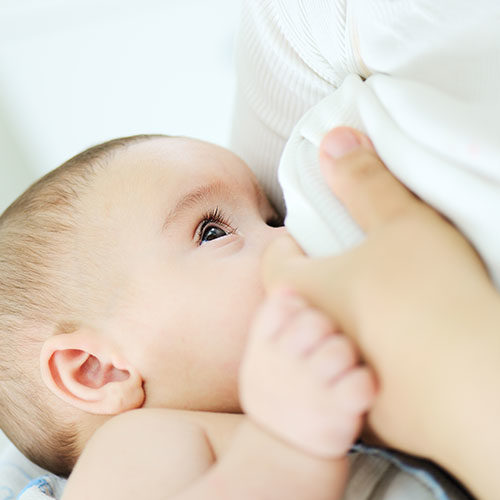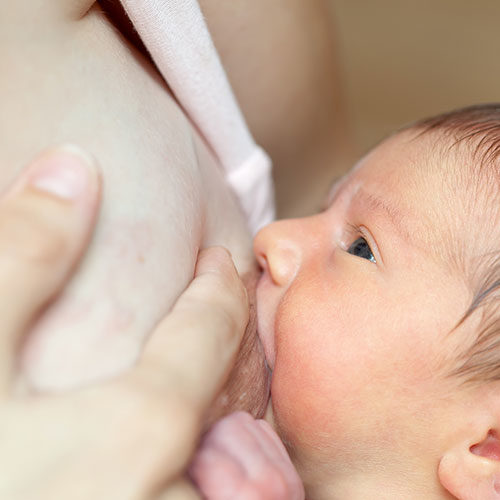Why is Self Care important for Mothers?
A mother’s mental and physical well being is equally important to ensure the baby’s well being. It is also elementary in achieving one’s breastfeeding goals.
Often, the physical, mental and emotional wellbeing are interconnected and interdependent. Purely physical activity like exercise can also bring mental relaxation and calmness. Similarly, some downtime or me-time can boost energy levels.
Relationship between Self-Care and Breastfeeding:
Just how self-care enables breastfeeding, breastfeeding too makes self-care more pragmatic, convenient and easy. E.g. A well-rested mother is more likely to nurse her baby on demand without any trouble. Here, self-care benefits the breastfeeding relationship. Breastfeeding in public lets the mother be out and about with her baby and not home-bound. Breastfeeding makes it easier for the mother to go out without taking the trouble to prepare the breast milk substitute, carry it, offer it in the right temperature within a particular time-limit etc. This is where breastfeeding makes self-care easier and convenient for the mother.
Self Care Tips for Breastfeeding Mothers:
1) Rest and Sleep
This is important for mothers in any and every stage of her breastfeeding journey, but perhaps most important for new mothers. Sleep deprivation can be very hard. “Sleep when the baby sleeps” is important, but much easier said than done. Co-sleeping with the baby and nursing lying down can help the mother catch up with the much-needed rest and sleep. This, in turn, helps the mother be more inclined towards picking up on subtle hunger cues of the baby and nurse often and on-demand. This has a positive impact on the mother’s supply and enables the greatest start and maintenance of the breastfeeding relationship.
2) Eat to hunger and drink to thirst and have things in moderation
In many Indian households, a new mother is given particular foods in the initial days. Most of these foods are rich in fat with ghee. Some new mothers may not like this kind of diet and end up eating it just to please other family members. Sometimes some mothers are forced to eat certain foods. In some contradictory situations, some mothers are judged for eating some kinds of food and sometimes, even for eating more than usual. It is important to note that the best way to handle such situations is knowing that – eating to hunger and drinking to thirst is the ideal thing to do. It is natural for a breastfeeding mother to feel more hungry than usual as she is burning a lot of calories merely by breastfeeding. So, it is important to go ahead and eat to hunger. Feeling extremely thirsty while breastfeeding is also natural. Keeping a bottle full of water handy at all times can be very helpful. Eating healthy is always preferable, but giving oneself an occasional treat of a favourite dessert or a junk snack should be absolutely fine too. Also, most babies are not affected by what the mother eats. Consuming everything in moderation is the key.
3) Household Chores
Managing Household tasks can be very challenging in the early days. This is true especially when there are limited family support and no hired help. It makes sense to explicitly ask for help from other family members. This help should be in managing the chores and not in taking care of the baby. Seek help for cleaning, cooking etc. If hired help is not possible, finding help from family and friends could be the next option. There are other additional things a mother could do to make chores easier for herself.
- Relaxing one’s standards in terms of keeping the house spotlessly clean and organised all the time
- Cooking and freezing batches of food during weekends when the spouse/partner is available for help
- Ordering in
- Baby-wearing and nursing in a carrier while finishing certain chores
4) Me time
Once the baby is born, most mothers find it difficult to find some alone time. Some ‘me-time’ can help the mother feel relaxed, in touch with herself and rejuvenated. This me-time can be at home, watching a movie or a favourite show on the TV, reading a book, tea/coffee in the balcony or by the window or it could be outdoors like a walk, a spa, a massage or getting ice cream! Someone can watch the baby at home for a short while or the mother could go out with the spouse/partner or friends who could hold the baby for a while.
5) Socialising
Being confined in the house with the baby in the early days can be tough and taxing. Not being able to have a normal social life of the pre-pregnancy and even pregnancy days may make some mothers sad. Nursing in public (NIP) can amend this beautifully.
6) Online Support System
There are many parent support communities on the online platform. These could be very useful in the early days when it still might be more difficult to resume one’s social life physically. This online support system is a boon. However, it is recommended to use them at one’s own discretion as everything one shares online stay on the internet and can be accessed by anyone. Safety issues need to be considered.
7) Physical Health
It is important to pay attention to health and fitness. After the go-ahead from her doctor, a mother can start her fitness routine gradually. Many mothers are eager to lose pregnancy weight. It is essential to understand that losing the pregnancy weight can be a lengthy process for the simple logic that – the woman carried her baby in her womb for 9 months and she took 9 months to gain that weight. Losing it could take just as long or perhaps a little longer. It might be a good idea to focus on being healthy and fit rather than only losing weight. Breastfeeding helps with weight loss too, as the mother burns a lot of calories by merely breastfeeding. For more details and tips, please read our article on ‘weight loss and fitness while breastfeeding’here.
8) Mental Health
Just as looking after one’s physical health is important, it is important to pay attention to the mother’s mental health. If she is feeling sad, anxious, overly worried beyond the first couple of weeks after the birth and if there are sudden appetite changes, she could be going through postpartum anxiety or depression. The gynaecologist or GP could guide the mother to a mental health professional. With lifestyle changes in this century, PPA and PPD are becoming more common and there should be no shame or hesitation in seeking help in such cases. For more details and information, please read our article on ‘PPA and PPD’ here.
9) Community Support
It helps to find support from the community that is in line with one’s own values, principles, plans and philosophies. This includes finding supportive health-care professionals (paediatricians and other doctors), like-minded parents who understand your goals, friends who respect your choices, employers who facilitate you etc.

Wish to speak with a member of our team who is a certified lactation professional and also an experienced breastfeeding mother, click on this link.
Medical Advice Disclaimer
THIS WEBSITE DOES NOT PROVIDE MEDICAL ADVICE.
The information, including but not limited to, text, graphics, images and other material contained on this website are for informational purposes only. No material on this site is intended to be a substitute for professional medical advice, diagnosis or treatment. Always seek the advice of your physician or other qualified health care provider with any questions you may have regarding a medical condition or treatment before undertaking a new health care regimen, and never disregard professional medical advice or delay in seeking it because of something you have read on this website.
Disclaimer
We understand and acknowledge that parents and babies can be of various genders on a spectrum of LGBTQI+. Families come in diverse flavours. However, in our articles, for the sake of simplicity and convenience, we will be referring to the breastfeeding parent as the mother and using the female pronouns- ‘she’ and ‘her’ for babies. Babies can be nourished and nurtured in different ways and while we have used the terms breastfeeding and nursing, we recognize that parents can opt to chest feed or finger feed.
We don’t have conflicts of interest and declare, and we are compliant with the WHO code of marketing of breastmilk substitutes and the IMS act.
In case you find any information on this website that needs to be updated, please write to us at info@bsim.org.in






